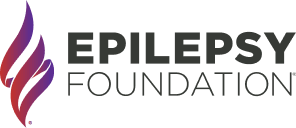Epilepsy Centers
A video by the National Association of Epilepsy Centers
Epilepsy affects about 1.2% of the population, and, in about 30% of people with epilepsy, seizures cannot be controlled with medications.
- There are about as many people with uncontrolled seizures as there are people with multiple sclerosis.
- The majority of people with seizures can be managed by neurologists, but the 30% or so that have difficult to control seizures and do not respond to standard treatment require the next level of care at an epilepsy center.
What is done at an epilepsy center?
- An evaluation at a specialized center typically begins with video EEG monitoring to record the seizures. This testing can confirm the diagnosis of epilepsy, the type of seizures, and where the seizures start in the brain. Answers to these questions help give people a more accurate outlook of what they can expect, understand what medications may work best for them, and consider which non-drug treatments (such as dietary therapy, devices, or surgery) may be appropriate.
- Many other tests may be done to look for causes of the epilepsy, the impact on a person’s health, cognition or thinking, and their general health.
- How living with epilepsy affects an individual’s and their family’s quality of life is also critical to understand.
What can people learn from an evaluation at an epilepsy center?
In general, if a person has uncontrolled epilepsy, an evaluation at a specialized center can determine the following:
- The diagnosis of epilepsy was incorrect.
- The diagnosis of epilepsy was correct, but the medication plan was not the best for the individual. This could mean that the wrong medication was used or the dose was wrong for that person.
- The person has drug-resistant epilepsy and medications will not work. In this case, options other than medications should be considered.
- The most effective non-drug treatment is, by far, resective surgery. This involves removing the area of brain where seizures start, if it can be identified. Most often this area is in the temporal lobe.
- Other options include the ketogenic diet, neurostimulation, vagus nerve stimulation, and other types of surgery.
Are there different types of epilepsy care?
- Video EEG monitoring is the key to proper epilepsy management at an epilepsy center. Yet, there can be many differences in how this test is done and interpreted. The specialist's experience in EEG monitoring is important to consider. In other words, it takes more than an EEG machine and a video camera to perform EEG-video monitoring.
- The National Association of Epilepsy Centers (NAEC) has defined various levels of Epilepsy Centers. To be called “comprehensive,” a center should provide all approved treatment options for seizures, including all available medications and the non-drug treatments.
Why should people consider going to an epilepsy center?
- Don’t settle for continued seizures! Unfortunately, despite several official recommendations, some neurologists and people with epilepsy tend to become complacent and tolerate seizures as if there were no options beyond basic medications. All too often, it seems, treatment only consists of refilling medications.
- Some people have types of epilepsy that can never be well-controlled. Yet many others can get seizures much better controlled if they consider newer or different treatments.
- Make sure your diagnosis is correct! Many people are treated for years without ever having EEG monitoring to be sure they have epilepsy or learn what other treatments may be possible.
- For example, about 30% of people sent to specialized centers for difficult seizures turn out to not have seizures and to have been misdiagnosed. On average, it takes these people 7 to 10 years before obtaining the correct diagnosis. This usually means many years of anti-seizure medications, emergency room visits, hospitalizations, tests, procedures, and other treatments for a wrong diagnosis of seizures.
- Similarly, people who become seizure free after successful surgery for epilepsy have, on average, waited 15 years to be referred to a specialized center.
How can people get to the right type of care earlier?
- Despite guidelines published by the American Academy of Neurology to encourage early referrals, recent evidence suggests that this tragic delay has not changed in the last 10 years.
- The National Association of Epilepsy Centers has also published guidelines for referrals. However, the information has to get out to the primary care and neurology communities, as well as to the general public. People need to know where they can get the "right help at the right time."
- To help improve this situation, the International League Against Epilepsy (ILAE) published a consensus definition of drug-resistant epilepsy, and the American Academy of Neurology included "surgical therapy referral consideration" in a series of quality measures. Hopefully helping people understand what drug-resistant epilepsy is and what to do if one has this may help. There is still much work to be done!
Resources
Epilepsy Centers
Epilepsy centers provide you with a team of specialists to help you diagnose your epilepsy and explore treatment options.
Epilepsy Medication
Find in-depth information on anti-seizure medications so you know what to ask your doctor.
Epilepsy and Seizures 24/7 Helpline
Call our Epilepsy and Seizures 24/7 Helpline and talk with an epilepsy information specialist or submit a question online.
Tools & Resources
Get information, tips, and more to help you manage your epilepsy.


